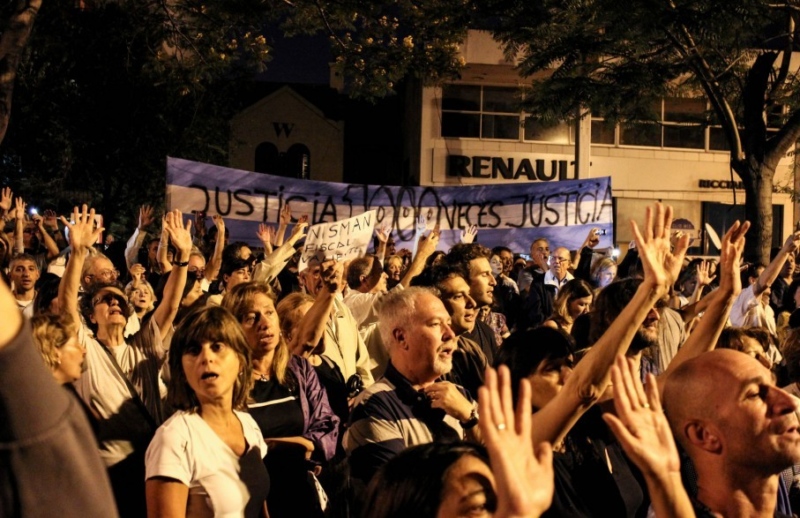Death of a Prosecutor
 J. Mallevi / CC BY-NC 2.0
J. Mallevi / CC BY-NC 2.0
According to polls, the circumstances surrounding the Nisman case have dealt a severe blow to confidence in the Kirchner government and the country’s judicial and intelligence institutions. Nisman, who had been investigating the 1994 bombing of a Jewish community center in Buenos Aires, was found dead one day before he was expected to testify before congress about his accusations against president Kirchner and others in the government. What is the significance of the current moment and what does it reveal about Argentina’s politics and institutions? How has the government handled the situation, and how have the political class and Argentine society responded? To what extent will the polarization and tensions produced by the Nisman case affect the political outlook in advance of next October’s presidential elections, especially in light of the country's economic problems?
To help put what is happening in Argentina in context and perspective, the Dialogue was joined by Santiago Canton, the Executive Director of RFK Partners for Human Rights at the Robert F. Kennedy Center for Justice and Human Rights and professor at Georgetown Law School and Universidad de Buenos Aires; Dina Siegel Vann, the Director of AJC’s Arthur and Rochelle Belfer Institute for Latino and Latin American Affairs; and Hector Schamis, columnist at El País, Op-Ed editor at El País América, and professor at Georgetown University’s Center for Latin American Studies and Democracy and Governance Program.



















